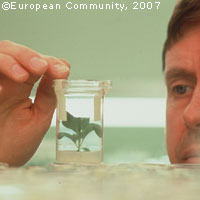Germany fourth to introduce EU scientific visa law
The German Government agreed an amendment to its immigration law on 28 March, making it easier for third country researchers to live and work in Germany. Germany has become only the fourth country to transpose the EU law on scientific visas into national law, following Austria, Slovakia and Slovenia. Greece and France are currently in the process of implementing law, but still need to complete internal processes. The deadline for the transposition of the regulation into national law is October 2007, but it now seems unlikely that all EU Member States will have undertaken the necessary measures by this date. 'The new policy will lessen considerably the bureaucratic requirements that individual researchers need for residency and employment permission in Germany and the European Union,' said German Minister for Education and Research Annette Schavan. 'Germany and Europe will, through this, clearly profit from becoming attractive for foreign scientists.' The minister added that with the new laws, Germany is 'sending out a clear signal about the strengthening of the innovation location that is Germany.' She added that she expects the new provisions to make Germany more internationally competitive. Whereas researchers from third countries have been able to obtain German residency for working on research projects for some time now, applicants would have to be checked by the foreign authorities as well as the Federal Agency for Employment. In future they will receive permission for residency for research purposes if they have a research contract with a recognised research institute. The decision allowing researchers from third countries to work in the Union was agreed by the Justice and Home Affairs Council in the summer of 2004. At the time, the Commission welcomed the decision, but was disappointed that the instrument approved by the Commission was not as far-reaching as the original proposal. The Commission would have liked to see more provisions for researchers' families, as splitting families acts as a deterrent to mobility. The Commission has also hoped for an agreement on a timeframe within which Member States should provide residence permits requested by third country researchers.
Countries
Germany



